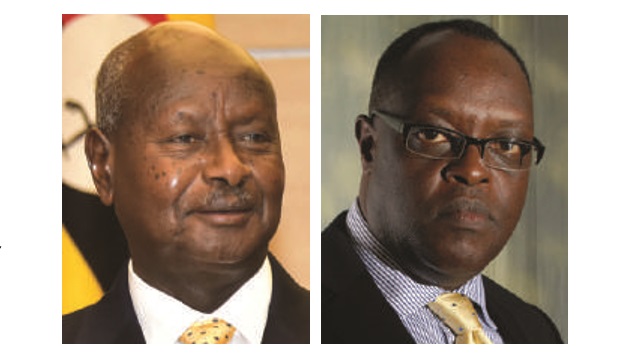
The accusations and denials are likely to come to the fore because, among other things, the provisional administrator is mandated to investigate the directors, shareholders and all present and past officers of UTL for the purpose of establishing any fraud or impropriety.
A major hindrance is that there is no past record showing that URSB has the capacity to tackle problems of this nature and Twebaze has just one month (start counting from April 29) to undertake this uphill task. Anite says she could extend his reporting timeframe if there is need. She also told The Independent on May 6 that provisional administration is the last option available to take to keep the company trading.
Anite has been working with management on a turnaround strategy for the company since 2016 when Utl troubles exploded under its Libyan government owners. Until recently, the Libyan government through a private company called Ucom controlled management as the major shareholder with 69% shares. The government of Uganda owns 31% shares.
Ucom is in turn owned by the Libyan Post, Telecommunication and Information Technology Holding Company (LPTIC) via its subsidiary LAP GreenN, according to available data. However, its operations have suffered because of the political limbo that persists in Libya since its former leader; Muammar Gaddafi who set up the company was ousted and killed in 2011.
The troubles crested in March when the government announced that the majority shareholders had written to it indicating that they were no longer going to fund the company and asked their directors to resign.
Anite says since then the government has been pushing to prop up the company because it is a big and popular brand.
“No company beats it when it comes to having rich infrastructure for internet across the country,” she said.
Sober management
Anite says Utl problem is bad management and some business management experts, including Ramathan Ggoobi, a senior lecturer at Makerere University Business School (MUBS) appear to agree. Ggoobi told The Independent on April 4 that “Utl is a company that any government wouldn’t want to lose at this time”. He said that if the company is sold or dissolved, all Ugandans would lose.
“We are in an information age,” he said, “It is a good business that is good for communication and security reasons.”
But he cautioned that if government is thinking of recapitalising the company, it should first privatise its management and then monitor it closely.
He said whoever takes over management must retain its active customers and attract new ones through product innovation and ensuring excellent service delivery.
Samuel Sejjaaka, a professor of business at Abacus Business School told The Independent on May 5 that putting the company under provisional administration means the government is prepared to recapitalise it.
He said although he lacked the finer details about the company, the new administrator could right operations in line with recapitalisation and rationalisation of the expenditure process.
“Liquidation of the company may not be off the table,” he said, “But it is a strategic asset of the government and they have to be careful with it.”
Meanwhile, Twebaze has started work. On April 30, amidst growing public outcry, he issued a statement that pointed out the company’s indebtedness but sought to reassure the public, creditors, and workers of Utl.
Twebaze said in his statement that his number one priority is to protect the company and ensure that it trades as a going concern, is stable, and will return to profitability in the long term.
“All employees are expected to continue with their normal duties as the provisional administrator assesses the situation,” he said.
He said the administration process is intended to achieve the best possible result for the company’s creditors who must now submit their claims to him and follow the due process. Indeed when The Independent visited URSB offices on May 5, several creditors could be seen heading to a particular office under the Department of Liquidation. They were UTL creditors seeking services on this matter. URSB officials, however, remained noncommittal on the strategy they were using to smoothly go about the administration.
Customer retention is Twebaze’s other major concern and he said he will put in place a seamless service.
But when The Independent did a quick survey of some kiosks of vendors of telecom products like airtime loading cards, none appeared to be retailing a single Utl product.
One attendant at a kiosk said in Luganda:
“Utl ekyakola?” one asked (Rough translation: Is UTL still operating?).
Not very good news for Anite, Museveni, and their URSB salvage team.
****
RELATED STORY
Top management at Uganda’s oldest telecom company UTL has been sacked to pave way for investigations into the… https://t.co/qJ6uNGSZUF
— The Independent (@UGIndependent) May 10, 2017
 The Independent Uganda: You get the Truth we Pay the Price
The Independent Uganda: You get the Truth we Pay the Price




Kaboyo grow up!! It is not about how many hours you worked. Tell us where did you find UTL and where did you leave it? What were you doing when you “worked beyond official working hours”? Siphoning off money am sure.
Anyone earning UGX120M from a sinking company should be able to work even 24 hours.